V For Vendetta Voices Our Fears



Alan Moore and David Lloyd created the cautionary comic V for Vendetta in the early 80’s, but it would be impossible for a 21st century telling of the tale not to evoke our current authoritarian leaders, or the gradual forfeitures of our civil rights.
Embracing this inevitability, the Wachowski brothers have condensed this British epic into a slightly more modern — and slightly more American — rebuke of those who would sacrifice freedom in the name of security.
Hugo Weaving, as the masked provocateur “V”, single-handedly confronts the near-future fascist British state with equal parts eloquent philosophy and large-scale demolition. Natalie Portman’s Evey is a common worker caught up in this titanic struggle, and is befriended by the titular character. Their relationship constantly evolves throughout the film, but their personal transformations are the heart of the movie.
The violence is a little too pretty, and events are a little too neatly wrapped up, but whatever your political leanings, the message is clear: a government that does not serve it’s people serves no purpose at all.
Written by Jeff in March of 2006. Last edited March 2019.
 Blue Moon Rising
Blue Moon Rising



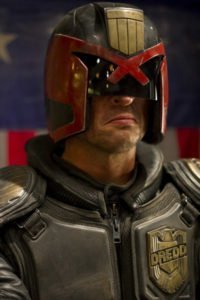


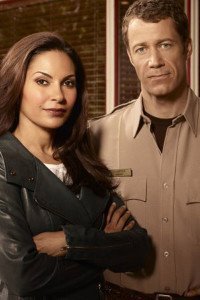
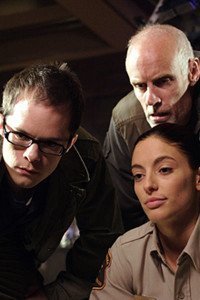
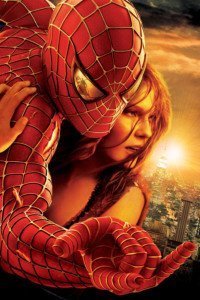
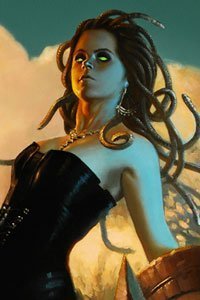
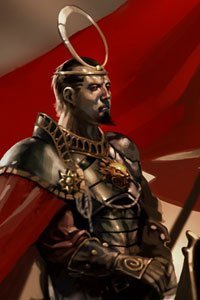
My biggest complaint is one that every person who loves a written work in any medium has during the translation to a motion picture:
Liberties with the tone and material.
I’ll speak on two levels about this. I’ll address the medium vs. the material, and then the movie without reference to the material.
Simply put, the strength of Moore’s original vision was not the fight for freedom, but the clash of two radically different ideologies: Anarchy vs. Totalitarism. V wasn’t so much a hero seeking freedom for the masses and the return of civil liberties is Moore’s book, but rather the faceless and masked concept of pure anarchy as a replacement of the status Quo. The reshaping V into a character dedicated to the bringing down the regime in the book for either revenge or political freedom differs in my opinion from the V of the series, which was dedicated to the ideal of Anarchy above all else. The changing of the characters, ranging from Eve to the police inspectors was also to benefit the recrafting of the story to a more terse version. The same problems that plagued the other Alan Moore materials ‘From Hell’ and ‘League of Extraordinary Gentlemen’ rears their heads here, leading me to think that Moore simply cannot be adapted into film or at least under four hours.
Now, as for the film, it’s brilliant in many levels. It clearly has a message, not a political left or right, but one of liberty and purpose in dire times. V is the everyman, made manifest in the ending scenes with the army of citizens in identical V costumes descending to the places of power. The action was a bit too like the Matrix, and as much as I think that Natalie Portman does rock, I’m not certain she was the best choice for Evie.
Then again, I liked ‘Deep Blue Sea’.